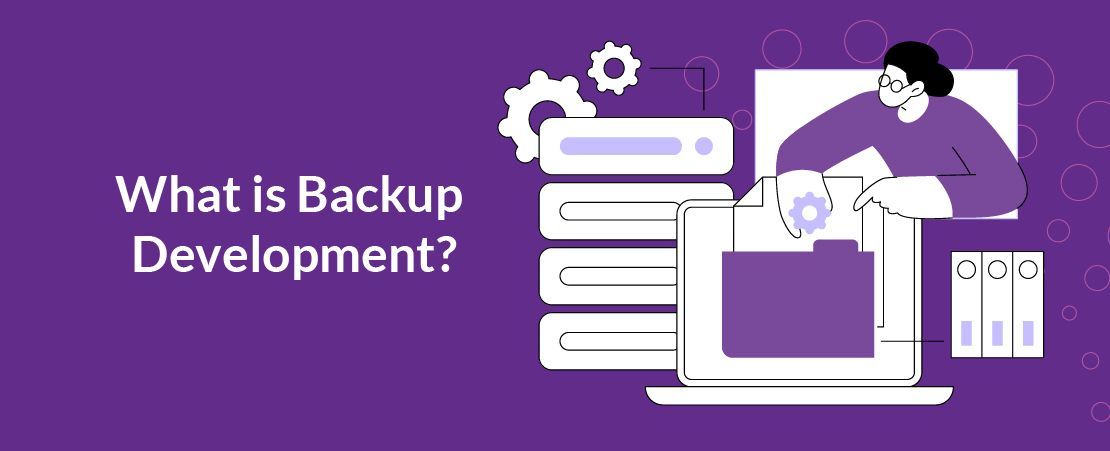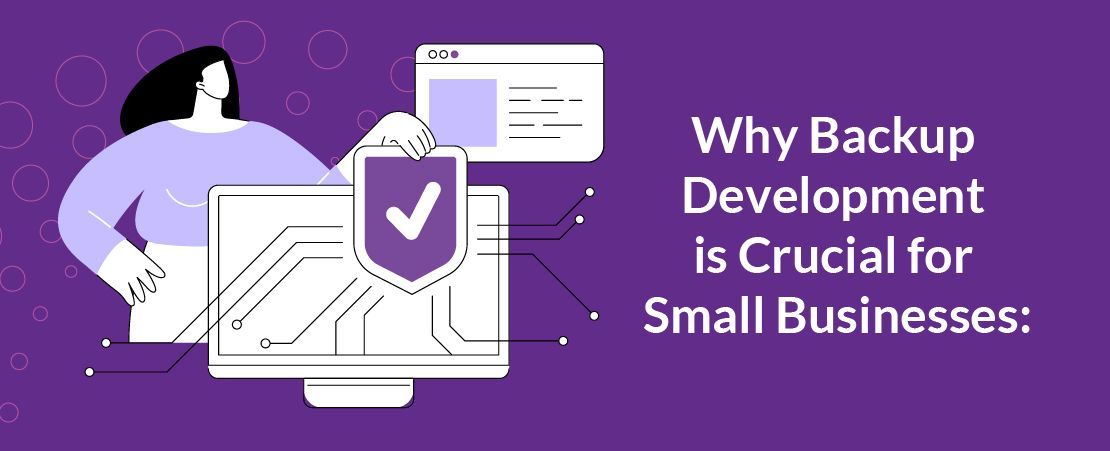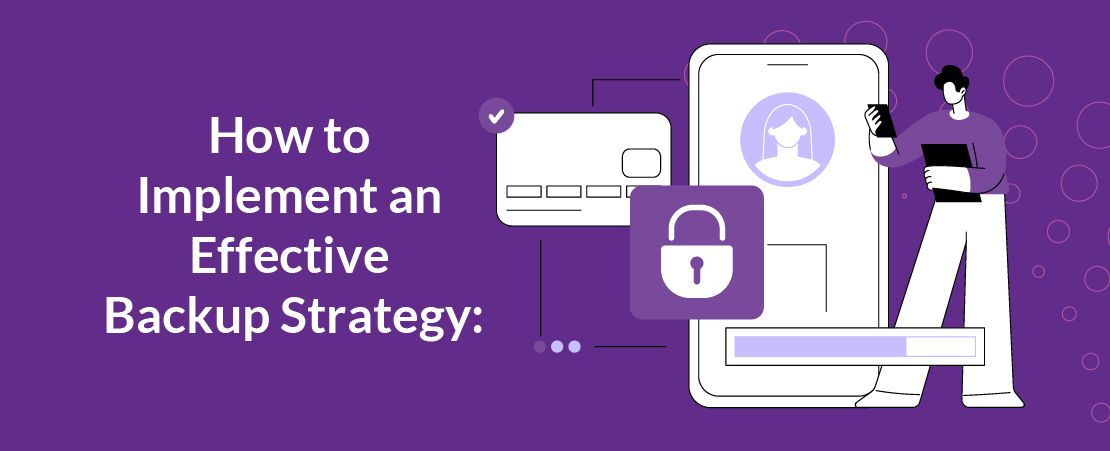The Essential Guide to Backup Development for Small Businesses
In the digital age, ensuring the security and continuity of your business operations is paramount. One crucial aspect of this is backup development.
For Small Businesses, the loss of critical data can be devastating, leading to operational disruptions, financial losses, and damage to your reputation.
To ensure that this does not happen to you, join us as we explain what backup development is, why it's essential for Small Businesses, and how you can implement an effective backup strategy.

What is Backup Development?
Backup development involves creating copies of your data and storing them securely so that they can be restored in case of data loss or corruption. This process ensures that your business can quickly recover from incidents such as hardware failures, cyberattacks, accidental deletions, and natural disasters.

Why Backup Development is Crucial for Small Businesses:
Data Protection: Data is one of the most valuable assets for any business. It includes Customer information, financial records, business plans, and other critical documents. Losing this data can cripple your operations. Regular backups ensure that you have a copy of all important information that can be restored if something goes wrong.
Business Continuity:
Unexpected events such as server crashes, cyberattacks, or natural disasters can disrupt your business operations. Having a reliable backup system
means you can restore your data quickly and minimise downtime, ensuring that your business continues to operate smoothly even in the face of adversity.
Compliance and Legal Requirements:
Many industries have strict regulations regarding data protection and retention.
Regular backups can help your business stay compliant with these regulations, avoiding potential legal issues and fines.
Customer Trust:
Your Customers trust you to keep their information safe.
Demonstrating a commitment to data protection through regular backups can enhance your reputation and build Customer trust. In the event of data loss, being able to quickly recover data can also help maintain Customer confidence.
Financial Security:
The financial implications of data loss can be significant, including the cost of data recovery services, lost sales, and potential legal fees. An effective backup strategy can
mitigate these costs by allowing you to restore data quickly and get back to business as usual.

How to Implement an Effective Backup Strategy:
Identify Critical Data: Determine which data is critical to your business operations and needs to be backed up. This typically includes Customer databases, financial records, employee information, business documents, and any other data essential to your operations.
Choose the Right Backup Solution:
There are several backup solutions available, each with its advantages and disadvantages, so ensure you choose the correct solution for your business.
- Local Backups: Local backups involve storing backups on physical devices such as external hard drives or network-attached storage (NAS). This method provides quick access but can be vulnerable to local disasters.
- Cloud Backups: This method stores backups on remote servers provided by cloud services. This offers high security and accessibility but depends on a stable internet connection.
- Hybrid Backups: Combining local and cloud backups provides extra security and convenience, providing the best of both worlds, ensuring data is safe and easily accessible.
Automate Backups:
Manual backups are prone to human error and can be easily overlooked.
Automating your backup process ensures that backups are performed regularly without fail. Many backup solutions offer automated scheduling, allowing you to set it and forget it.
Regularly Test Your Backups:
It's not enough to simply create backups; you need to ensure they work.
Regularly test your backups by restoring data to verify that the process works correctly and that the data is intact. This will give you confidence that your backups are reliable when you need them.
Implement Security Measures:
Protect your backups with robust security measures to prevent unauthorised access. This includes
encrypting data, using strong passwords, and ensuring that backup storage locations are secure. For cloud backups, choose reputable providers with strong security protocols.
Maintain Multiple Backup Copies:
Follow the 3-2-1 backup rule: keep at least three copies of your data (one primary copy and two backups),
store the copies on two different types of media, and keep one backup offsite. This ensures that you have multiple layers of protection against data loss.
For Small Businesses, backup development is a critical component of a robust data protection strategy.
By identifying critical data, choosing the right backup solution, automating backups, regularly testing them, implementing security measures, and maintaining multiple backup copies, you can safeguard your business against data loss and ensure continuity in the face of unexpected events.
Investing in a reliable backup system is not just a precautionary measure, it's a proactive step towards securing your business's future!










